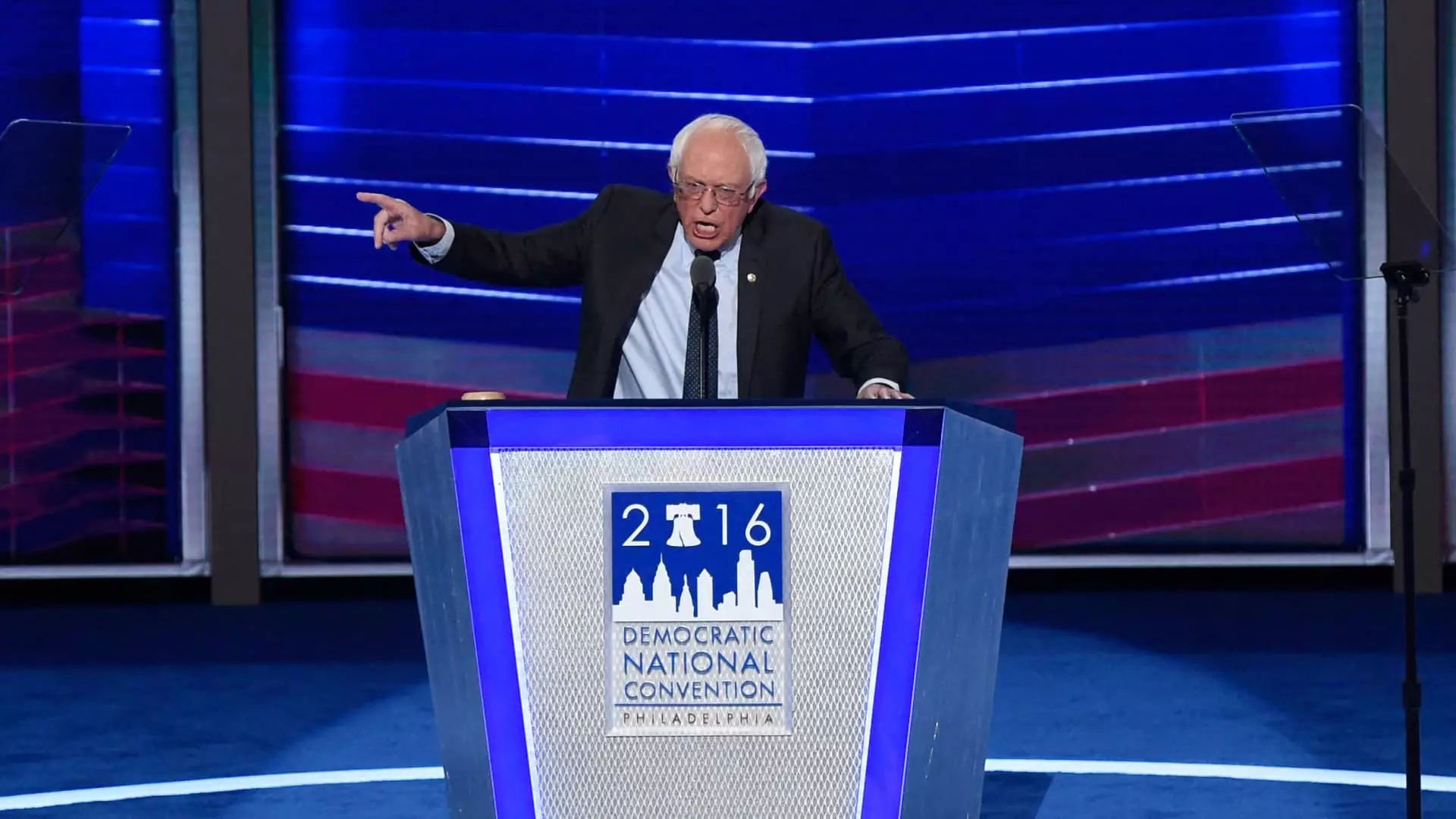Senator Bernie Sanders, an Independent from Vermont, took center stage at the recent Democratic National Convention, using the opportunity to articulate his distinct policy priorities. His address, replete with a strong commitment to a Medicare for All program, stood in stark contrast to the platform of Vice President Kamala Harris, indicating both ideological divergences within the Democratic Party and the complexities of party unity as the 2024 election approaches.
One of the most striking aspects of Sanders’ speech was his unwavering advocacy for universal health care. “We need to join the rest of the industrialized world and guarantee health care to all people as a human right, not a privilege,” he proclaimed with passion. This declaration reflects a long-standing theme in Sanders’ political career: the belief that access to healthcare should be inherent and not contingent on financial means. Sanders’ claim for Medicare for All starkly aligns him with progressive elements in the party, emphasizing a potential rift with moderates like Harris and President Joe Biden. Notably, Sanders acknowledged Harris’ differing stance, saying, “That’s not her view, nor is it President Biden’s point of view. And you know what, I think I’m right and they’re wrong.” This stance not only underlines his individual convictions but also frames him as a focal point for progressive activists seeking a more comprehensive overhaul of the country’s healthcare system.
In addition to healthcare, Sanders addressed the pervasive influence of money in politics. He stated emphatically that “billionaires in both parties should not be able to buy elections,” a sentiment that resonates with many Americans distrustful of the political establishment. Sanders’ rhetoric, while impactful, serves as a direct challenge to the funding mechanisms employed by candidates like Harris, who have garnered significant financial support from mega-donors. Following this, Sanders highlighted issues pertaining to corporate monopolization, framing his arguments as a fight for the working class against industry behemoths that undermine democratic processes and social equity.
This critique of big money in politics reflects Sanders’ broader anti-establishment ethos, revealing the tensions between grassroots movements and financed campaigns. Sanders’ call to arms against corporate greed outlines an economic narrative that seeks to reclaim the political landscape for the average voter, thus reinforcing his role as a leader among progressive activists.
In a departure from convention norms, Sanders opted not to lavish praise on Harris or align fully with the party line regarding Biden’s leadership. Instead, he acknowledged his support for the vice president while simultaneously emphasizing their differences. Sanders’ lukewarm remarks about Harris—calling her “a great campaigner” while noting their lack of a close relationship—suggests a calculated stance aimed at preserving his ideological integrity. By not conforming to the expected template of unqualified support for party leaders, Sanders sets himself apart as a figure unafraid of dissent within the party framework.
Moreover, this approach shines a spotlight on the broader division within the Democratic Party, where progressive ambitions often conflict with more centrist positions. Sanders’ choice to highlight these contrasts may serve as a double-edged sword, presenting an opportunity for Harris to pivot and appeal to more moderate voters who may feel alienated by his far-left positions.
The backdrop of the convention was also marked by Republican narratives attempting to label Harris as an extreme leftist, with figures like former President Donald Trump characterizing her as “a Communist.” In this context, Sanders’ remarks could provide a counterbalance. By presenting himself as a more radical option, Sanders inadvertently repositions Harris within a more moderate light, potentially softening the perception of her policies among undecided voters. As evidenced by a New York Times and Siena College poll indicating that a significant portion of voters perceived Harris as “too liberal,” Sanders’ presence could mollify concerns about her alignment with the progressive agenda.
This framing not only assists Harris but elevates the discourse surrounding progressive politics, illustrating that the party houses diverse viewpoints. Austin Davis, a young communist from Chicago, underscored this sentiment by stating, “Kamala is not a communist,” thereby revealing a shifting narrative among younger voters that may influence perceptions during the election.
Ultimately, Bernie Sanders’ address at the Democratic National Convention encapsulated the complexities within today’s political landscape in the United States. His resolute advocacy for Medicare for All and critique of corporate influence in politics stand as testament to his long commitment to Democratic Socialism and economic justice. However, the contrasting views he expressed highlight a deeper ideological schism within the Democratic Party—one that could either strengthen the party’s resolve or deepen its divisions as it gears up for a contentious 2024 election. The effectiveness of Sanders’ unconventional approach may very well determine how Harris and Biden navigate their paths forward amid an increasingly polarized electorate.


Leave a Reply